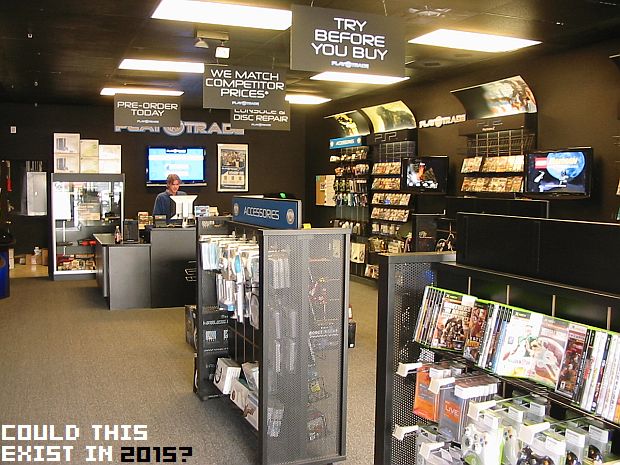Last week’s MI6 conference was a big deal, mostly for those who happen to be in marketing in the games industry. However, some interesting news has come from the event, like Sony’s admissions that they recognize their arrogance about the PS3, and that they hope to change that. Anyway, beyond Sony, there was much talk on the issue of game distribution and where it will be in the future.
That was up for discussion during the roundtable discussion in “Game Distribution in 2015,” a conversation between some of the heaviest hitters in this portion of the industry. The panelists included Rich Hilleman, the Chief Creative Director of Electronic Arts; Dave Perry, now CEO of distribution service Gaikai.com; Chris Petrovic, SVP and General Manager of GameStop Digital Ventures; Mark Skaggs, the VP of Product Development of Zynga; and Christian Svensson, VP of Strategic Planning and Business Development for Capcom. All of them were ready to peer into the looking glass for how games will be brought to gamers five years from now.
Hit the jump for more on their vision of the state of digital distribution in 5 years.
Obviously, since each person has a stake in the future of distribution, they each had different things to say on the issue. Hilleman and Skaggs, for example, were both proponents of easy-to-run quick games like FarmVille and titles from PopCap and Pogo. These are solid game offerings that work well in conjunction with DLC.
For these men, one big issue was what defines digital products. Many of them mentioned smaller episodic titles that would minimize financial risk, especially with cheaper development and no printing costs. Also, reaching the consumers who currently don’t consider themselves gamers — i.e., casual gamers — is something that digital services could excel at. However, some of those in the discussion, like Perry, complained that very expensive $20 million titles will be placed on Xbox Live and the PlayStation Network, and they will only have a small image and sentence describing the game for advertising. Clearly, there are issues with marketing digital titles as well.
Another topic of discussion was whether or not physical media would clearly be around in 2015. Many agreed that something would be sold during the launch of the game — perhaps products like t-shirts and figurines, things that could entice gamers to make a physical purchase. Petrovic, who is on the forefront of moving GameStop to a distribution service that can survive in a strictly digital environment, as well as Skaggs, mentioned that even online-only games, like FarmVille, are now selling points cards in stores. The attitude among most was that there will be plenty of offline, real-world purchases that will be made in 2015.
Those in opposition, however, mentioned the music industry, and how the rise of digital distribution broadsided record companies. Services like Direct2Drive, and possible upcoming threats like Amazon, could easily shake up how gamers consume games.
The biggest concern that many of them agreed upon was the problem with download speeds, especially in America. Huge downloads ranging from 6 to 15 GB were viewed as too much for an average gamer. Perry, who looked at free-to-play MMOs in Asia, noted that those games need to load immediately, otherwise most players will lose interest. He is clearly in support of cloud processing. This attitude was felt across the board, and the consensus was that consumers were not going to be ready for large downloads until bandwidth in Europe and America is improved. Pre-downloading and setting a download up in the morning or at night is only going to fill the needs of certain gamers.
Until bandwidth increases, according to Hilleman, discs and physical media are still going to be around. Oddly, Hilleman also brought up an interesting vision of where consoles themselves were going to be. He argued that we will see a “PS3.5” and an “Xbox 540” in the next five years. “There is nobody in a big hurry to drive that forward,” he argued.
In the end, it was Perry who seemed to boil down the biggest issues with digitally distibuted games. Consumers, he says, have loyalties to games — not vendors or publishers. For everyone who plays games, they need a way to receive their titles, and make the middleman as little an issue as possible.





Published: Apr 5, 2010 08:00 am